- Home
- Dornford Yates
House That Berry Built Page 2
House That Berry Built Read online
Page 2
“Some what?” said Jill.
“Beds,” said Berry, helping himself to toast. “If we had four single beds—”
“I refuse,” said Daphne, “to have a decent sitting-room littered with beds. After all, we’re not animals.”
“That’s the trouble,” said Berry. “If we were, we should have more sense. Did you ever see a dog get up in a French chair? He’s not such a fool. And now can I have some more coffee? Or would that be gluttony?”
The division of labour was rearranged.
Daphne and Jill were to engage servants, purchase the necessary appointments and take in stores. Jonah was to arrange for transport and to see what he could do about finding a run-about car. I was to answer for the drinks, find some garden furniture and purchase the cord and the lamps, for hanging light in the limes of the terrace of the Villa Bel Air.
We were about our business by ten o’clock.
My brother-in-law did not return for lunch, but a taxi brought him to the villa by four o’clock.
“Where ever have you been?” said Daphne. “When you didn’t appear, we nearly didn’t get any lunch. Eugène kept us waiting for hours, because you’d specially ordered—”
“I know,” said Berry. “I know. I thought of that lovely confection when I was making shift with broiled trout. But duty will be duty. Besides, the trout was quite good; and the omelet aux olives that followed belonged to the books. But that’s by the way. I’ve lighted a candle today that it will take years to put out. Our sitting-room at Bel Air will become a household word. I mean, it makes you drowsy to look at them.”
“Have you really got there?” said Jonah.
“Got there?” said Berry. “I’ve soared. My feet are still off the ground. You know, when I extend myself, I really get quite frightened at what I can do. No other man—”
“Let’s have it,” I said brutally.
“How offensive,” said Berry. “Never mind. In your next life you’ll probably be a corner-boy again. As I was about to say, I visited four emporia without success. And that is putting it low. Might as well have inspected a lot of rock-gardens. The fifth emporium was owned by a man of incredible age. I don’t think his eye was dim, but his hearing was abated. He seemed to think I was asking the way to Bayonne. Took me out on the pavement and showed me. When he’d quite done, I approached my lips to his ear and shouted ‘fauteuils’. Then we re-entered the shop and had a short talk about Voltaire. Finally, he went and got an ear-trumpet which – well, I can’t swear I saw it move, but I think it would have come if he’d called. And then at last he understood what I said. I knew that, because he laughed – gave me the spittoon to hold and laughed like hell. When the convulsion was over, ‘I know what you want,’ he crowed, ‘for I have cared for the furniture in more than one English house: but you’ll never get it here – or anywhere else in France, unless you attend a sale at an English house. And that you may do, if you please, this afternoon. An Englishman died at Violet six months ago, and now his household stuff has come to be sold. Beds and carpets and chairs, at the Château Philippe. I do not know the contents myself, but if you think it worth while to drive seventeen miles…’ I blared my thanks into the helpmeet, shook its master’s time-honoured hand and rushed about the streets like a madman, trying to sight the Rolls. God knows what you do with that car. In the end I took a taxi and drove the seventeen miles in the sweat of my face. You see, I couldn’t wait, for the private view was to end at twelve o’clock. I got there at ten minutes to. And there they were – in the hall. Two chairs and a glorious Chesterfield…made in England, my hearties, three sumptuous chapels of ease…
“Be sure I tested them. But England builds stuff to last. A little rubbed here and there, but all their springs were sound. The trouble was that it was a four-days’ sale. So I found the auctioneer and asked him to lunch…
“You know, I like this country. Before we had reached the cheese, it was all arranged. The chairs and the sofa were to be put up at three, and if anyone tried to run the stranger up – well, the auctioneer would fix him. I said I’d give twenty-five pounds, which the auctioneer agreed was a proper price. Over the second brandy, he told me not to come in till he lighted a cigarette…
“Well, all went according to plan. The stuff was put up at three, and the dealers got round. They’d made a ring, of course… I stood at the back, watching. The bidding rose to twenty, and there it hung. The auctioneer tried to raise it, without success. I saw the dealers laughing and moving away. Then the auctioneer struck a match and I nodded my head. ‘Twenty-one pounds,’ he snapped, and knocked them down. Before the ring had recovered, he was selling a bust of Flora, which was short of one ear.
“And there you are. When I gave his clerk the cheque, he gave me the dealers’ names, so that when we want to sell, we’ve only to let them know.”
“Of course,” said Daphne, “one of these days you’ll be prosecuted.”
“Nonsense,” said Berry. “It was a business deal. For once the wicked were routed, and the righteous came into their own. What about transport, Jonah?”
“That’s all right,” said my cousin. “I’ve got a small furniture-van. We can go round by Violet and pick them up.”
“What about the covers?” said Daphne. “They’ll have to go and be cleaned.”
“Don’t be silly,” said Berry. “You don’t clean morocco leather. You use a damp cloth and a chammy, to bring it up.”
As soon as she could speak—
“And they’re not in ribbons?” said Daphne.
“A little rubbed,” said Berry. “But I didn’t see any holes.”
“And you paid twenty-one pounds for a three-piece suite? You and that auctioneer ought to be in jail.”
“All right,” said Berry. “Don’t you sit on them. Don’t be involved in my iniquity.” He laughed wildly. “I achieve the impossible, I secure our sanity for two months to come, only to be branded—”
“Good God!” said Jonah suddenly, and lowered The Times.
“What is it?” said everyone.
“Old Rowley’s been murdered.”
“Murdered?” breathed Daphne. “Old Rowley?”
“Murdered,” said Jonah.
All of us sat very still.
Sir Steuart Rowley was more than a King’s Bench Judge. He was a great gentleman. He had the spirit and the manners of another and finer age; and though our acquaintance was slight, we set great store by it. He had always dined at White Ladies, when he was at Brooch on Assize, and had seemed to enjoy his visits as much as had we. Little more than a year ago, his work at Brooch being done, he had spent the weekend with us, and it was the very great interest which he had shown in our home that had encouraged us to name him as one of White Ladies’ Trustees. That was two months ago. To our delight, he had consented and had been appointed to act.
And now he was dead – murdered.
“What a filthy shame,” cried Jill. “And he was so nice and so gentle in every way.”
Jonah sighed.
“Someone doesn’t seem to have thought so. Chloroformed and then strangled – with a piece of flexible cord.”
“Good God!”
“Found by the servants in the morning, dead in his chair.”
“What a shocking thing,” said my sister. “Have they any idea who did it?”
“If they have, it doesn’t say so. But that doesn’t mean a thing.”
“And his wife? Oh, no. She’s dead. What a merciful thing. Wasn’t she John Shapely’s widow?”
“That’s right. She died last year. The murder was done at Dewlap, the Shapelys’ place.”
“Shapely,” said I. “That’s who it was – his stepson. He was taking in petrol at Lally yesterday afternoon.”
“That caravan?” said my sister.
“That’s right,” said I. “I knew I knew him, but I couldn’t put a name to his face.”
“Which way was he going?” said Jonah.
“Towards the Col de Fer.�
�
“Then he doesn’t know what’s occurred. I mean, today is Thursday, and poor old Rowley was murdered on Monday night.”
“They can call him on the wireless,” said Jill.
“I didn’t notice an aerial on the van. D’you think we should—”
“No,” said Jonah. “Sooner or later he’ll hear. And he can’t do any good. It isn’t as if his mother was still alive.”
“But what an alibi!” said Berry.
“Yes, it lets him out,” said Jonah. “But I hope they get the swine. Both on and off the Bench, Old Rowley was one of the best.”
That night we listened to the news.
Sure enough, the call was made.
“Before I read the news, here is an SOS. Will Fergus Colin Shapely, believed to be touring in the Pyrénées, return home at once, as his presence is urgently required?”
However slight, a move is a hectic business, and we were all down the next morning by half-past eight. All, of course, except Berry. Half-past nine was his hour, though the heavens fell.
Jonah had found and had purchased an excellent run-about car. Again, our luck had come in, for, if we had had our choice, this was the make and the model which we would have owned. A brand new, four-cylinder Andret – a black saloon, and a very good bargain indeed at one hundred and fifty pounds. It had, of course, been ordered by somebody else, but he had grown sick of waiting and had purchased another car: so this one was free when Jonah walked into the shop.
And almost everything else was only awaiting collection by Jonah’s van.
“I suggest,” said my cousin, “that Berry and I should shepherd the furniture-van. When we’ve picked up the stuff here in Pau, we can drive to Violet and take in the nests for rest. And thence to Lally. We should be there about one.”
“That’s all right,” said Daphne. “The servants are leaving at nine and should get there at half-past ten. They’re taking some food with them, so they can give you lunch. Monique’s not coming, so she will stay and clear up. The inventory here should be finished by twelve o’clock. Therèse will attend to that, but I must have a car this morning – I’ve two or three things to get. Then we can lunch in the town, and Boy can drive us to Lally. We ought to be there by three.”
“You bring Therèse with you?”
“Yes. Did you wire for Carson?”
“I did,” said Jonah. “He’ll be here tomorrow morning.”
“Thank heaven for that,” said Daphne. “With Therèse and Carson behind me, I could face the end of the world. No crisis faces them. They just get down to things.”
This was most true. Therèse was Daphne’s maid – had been her personal maid for several years. And Carson was Jonah’s servant. I have yet to learn what Carson could not do.
“Well, we’ll take the Andret,” said Jonah, “and you can have the Rolls. That’ll work out very well, for the van will do about twenty and, because our engine is new we shall have to go slow.”
So it fell out – except that, as I had expected, Daphne and Jill, between them, were not prepared to leave Pau until half-past four.
Forty-five minutes later I brought the Rolls to rest in the drive of the Villa Bel Air.
Berry was at ease on the terrace – in two of the really excellent garden-chairs. By his side, a very large mug had contained some beer.
“Up to time, as usual,” he murmured. “Or did you say three o’clock? Ah, there’s Therèse. Therèse, did you get that silk?”
“Yes, indeed, Monsieur. And it is very fine. I purchased a metre, as Monsieur told me to do.”
“What silk?” said Daphne.
“In her spare time,” said Berry, “Therèse is going to make me some ties. Dress ties. The ones I am wearing, she says, are unworthy of me.”
“But it is true, Madame. All that Monsieur has is above reproach – excepting only his ties for evening wear. The merchant who sold him them was a man without conscience. A robber. There, I have said it. That Monsieur should be arrayed in stuff that Eugène would reject!”
“Oh, it’s outrageous,” said Berry. “But there you are. If you have a lamb for a master—”
“Monsieur exaggerates. Not altogether a lamb.”
“Half lamb, half archangel. Oh, and here’s our water coming.”
“Water?” said Jill. “What water?”
“Our water,” said Berry, pointing.
Up the hill towards us was moving a donkey-cart. In this was wedged a gigantic, covered bucket, such as the French employ in the washing of clothes.
“You see,” said Berry, “you can’t drink the water here. At least, you can if you like; but if you do, you probably won’t drink it long. It’s quite all right for washing, but Eugène won’t use it for cooking: he says it isn’t safe.”
“My God,” said Daphne. “D’you mean to say—”
“Twice a day,” said Berry, “that patient beast of burden will bring us the Lally water, that we may live. It’s all arranged – at two francs fifty a voyage. Eugène and Jonah did it – and I approved their deed.”
“But that rill at the back of the house!”
“Oh, that’s still there,” said Berry. “I wouldn’t be without it for worlds. I count upon its babble to send me to sleep. But the trouble seems to be that we reside at its foot and not at its head. Eugène is a countryman and he’s reconnoitred its source. It’s quite all right for lavatories. By the time it gets to us, it’s used to them.”
“But what about washing?” screamed Jill.
“Well, I’m told it won’t stain,” said Berry, “unless they’re dipping the sheep at the farm above. Besides, we can strain it for ticks.”
“Where’s Jonah?” said Daphne. “I don’t believe—”
A shriek from Therèse cut short the dialogue.
Daphne and Jill and I made for the hall.
Weak and helpless with laughter, Therèse was leaning against the sitting-room door.
“What is it?” demanded Daphne.
By a stupendous effort, Therèse controlled her mirth.
“Madame must excuse me,” she said. “I am well accustomed to Monsieur, but not to this. Madame has not seen her salon.”
With that, she opened the door…
Jonah was in his shirt-sleeves, lovingly polishing a truly mountainous chair. Beyond this stood its fellow, another sumptuous product of the upholsterer’s art. And against the wall on the left stood the very largest sofa that I have ever seen. It was just under twelve feet long by four feet wide. Had it stood in a banqueting-hall, its astounding proportions would have occasioned remark; in a sitting-room twenty-two feet by seventeen…
I began to yell with laughter.
Then Jill broke down, and, finally, Daphne herself.
“It can’t be true,” she wailed. “We’re imagining things.”
Jonah looked round, pipe in mouth.
“You wouldn’t say that,” he observed, “if you’d helped to get it in. It took six of us to do it. We brought it in by the window – it wouldn’t go through the door. And look at these chairs. Upon my soul, I give your husband best. These three bits together are worth two hundred and fifty to any London Club.”
“But look at the room,” wept Jill. “It’s like a Pullman car.”
“A sitting-room,” said Jonah, “should justify its name. Besides, there’ll be room for a table, in case we want to write.”
Berry appeared at a window.
“Am I commended,” he said. “Or am I reviled? Not that I care two hoots of a b-bicycle b-bell. But, just as a matter of interest…”
“Darling,” said Daphne. “Words fail me. The monuments are stupendous. Just at the moment I feel a little bit dazed. I mean, when you first come in…”
“I know what you mean,” said her husband. “You see they’re there. The room’s a shade small, of course. But do sit down on them. Try the Chesterfield first.”
My sister did as he said.
She settled herself in a corner and closed her eyes.
After a moment or two—
“You win,” she said. “I never thought to live in a showroom. But comfort like this is too rare. I won’t give it up.”
Jill sank into a chair, and had to be helped to her feet. Finally, I sat down. I can only say that, once you had taken your seat, you were most reluctant to rise. It was rather like leaving a bath on a snowy day.
“You see?” said Berry.
“I do, indeed,” I said. “And I give you best. I’ve never seen anything like them in all my life.”
My brother-in-law shrugged his shoulders.
“I struck while the iron was hot, but the point is the iron was there. And not only there, but hot. And that is a combination of circumstances with which I have not been faced for several years. In a word, it looks as though our luck was beginning to turn.”
“God send you’re right,” said Jonah.
“I believe he is,” said I.
With that in my mind, I put some champagne upon ice. After all, the girls were tired.
2
In Which Jill and I Notice a Meadow,
and Berry’s Confidence is Misplaced
I was down the next morning by seven o’clock, and a quarter of an hour later Cousin Jill and I were climbing the mountainside.
We moved through the lynchet-meadows directly above Bel Air, keeping to the side of the rill and going straight up. (I call them lynchet-meadows, for lack of a better term. In fact, they were larger than lynchets, and had the shape that meadows always have; so that, while a series of lynchets resembles a mighty stairway cut on a mountainside, these meadows resembled a flight of broad, irregular steps, the treads of which were sloping, after the way of a ramp. In every case their risers were piled stone walls: and these retained the soil, keeping the ‘step’ above from gradually slipping on to the ‘step’ below.) In the meadows the going was easy, steep as they were; but the piled stone walls were higher than they appeared, and more than once I found that the easiest way to help Jill was to set her upon my shoulder and let her scramble from there to the meadow above. For Jill is a feather-weight.
As I joined her in the third meadow, she slid a bare arm through mine.

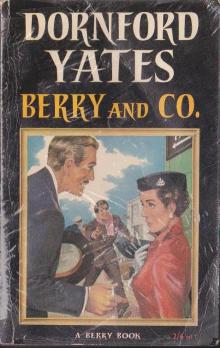 Berry and Co.
Berry and Co.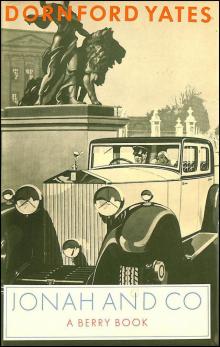 Jonah and Co.
Jonah and Co.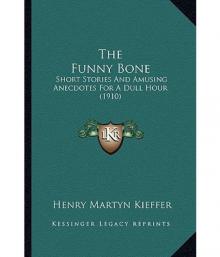 The Funny Bone: Short Stories and Amusing Anecdotes for a Dull Hour
The Funny Bone: Short Stories and Amusing Anecdotes for a Dull Hour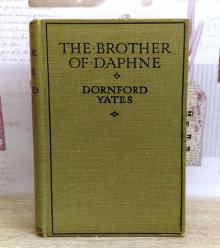 The Brother of Daphne
The Brother of Daphne Courts of Idleness
Courts of Idleness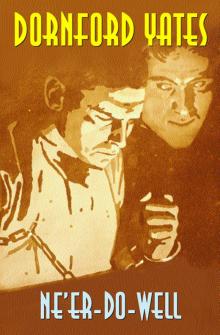 Ne'er Do Well
Ne'er Do Well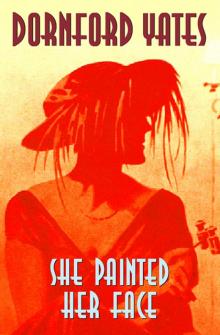 She Painted Her Face
She Painted Her Face Safe Custody and Laughing Bacchante
Safe Custody and Laughing Bacchante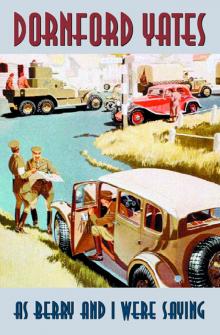 As Berry and I Were Saying
As Berry and I Were Saying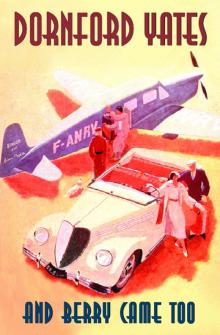 And Berry Came Too
And Berry Came Too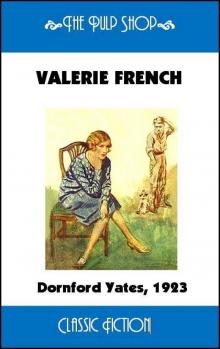 Valerie French (1923)
Valerie French (1923)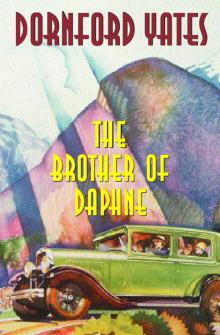 Brother of Daphne
Brother of Daphne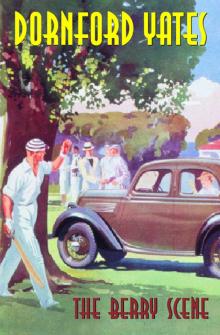 Berry Scene
Berry Scene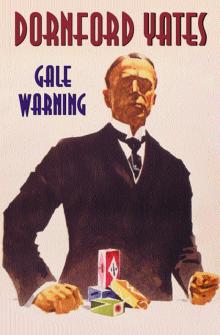 Gale Warning
Gale Warning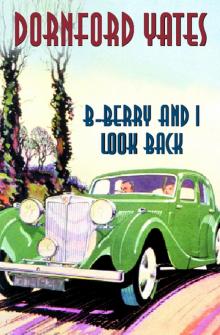 B-Berry and I Look Back
B-Berry and I Look Back Storm Music (1934)
Storm Music (1934)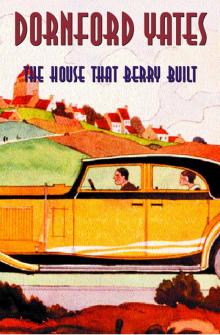 House That Berry Built
House That Berry Built